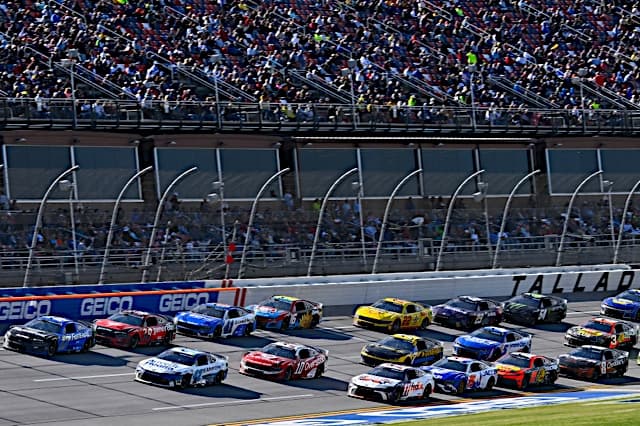NASCAR is a numbers game.
All sports are numbers-driven, really, because numbers are, at the close of a day, a season, a decade or a career — the only quantitative measure of an athlete’s accomplishments.
There’s certainly a lot to be gleaned from numbers. Beyond the titles and the wins, there are things like runner-up finishes and top fives, average start or finish, how many laps a driver led and how many times a driver didn’t finish at all.
If you really want to look at numbers, you can find all kinds of things like drivers who have won on their birthdays (it’s been done a total of five times by three different drivers) or in their first starts or over the age of 50 or under 20 or just about anything you can think of.
And none of it tells the real story.
You might have heard the saying that there are three kinds of lies: lies, damn lies and statistics. It predates NASCAR and was made popular by writer Mark Twain.
It doesn’t mean that numbers don’t or should not matter, but rather that numbers alone can be misleading. Think things like most lead changes happening during pit cycles but touting all the passing. If a race had long green-flag runs and a lot of pit cycles, there could be several leaders without anyone actually making a pass. A person might argue that the race featured multiple leaders and must have been good. Another might argue that all but one lead change happened during pit cycles and the race was bad.
Both look like valid arguments. The reason they’re not is this: the one green-flag pass happened coming to the checkers after the two drivers bounced off each others’ doors for the last 10 laps.
The first person might be right that the race was a good one, but it was good because of the finish (though you can certainly have a lousy race with a great finish) and not the number of lead changes alone.
The second person is overlooking the finish because the race wasn’t what they wanted to see, but neither one is telling the whole truth in their assessment. Whether a race was good or not is subjective.
Now consider the drivers. Some drivers are better than others, with a small group being truly elite. But rarely does a driver race at NASCAR’s top level without talent.
It’s really, really hard to quantify talent on any tangible level. Fans will argue whether a certain driver has any, but mostly they point to wins and titles to prove or disprove a driver’s worth.
Those…
Click Here to Read the Full Original Article at …

